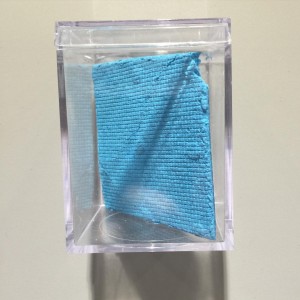Dome houses




The mysterious domes marching into the sea off Cape Romano, Florida.





The mysterious domes marching into the sea off Cape Romano, Florida.



Smushed against a greenhouse wall, flowers look like paintings.
I finished working for Code for America back in October, so I'm available for freelance work again. Drop me an email if you would like to chat!

“Dyed snail excremental that have been altered by a diet of colored paper. The snails are fed a strict regime of colored cellulose paper and because they cannot assimilate the paper’s pigments, their bodies reject the color of the ingested paper creating colored excitements. Applications include floor tiles and can be used for packaging.” (at Material ConneXion)
The story is told of a focus group for a new $100 electronic gadget. The response in the focus group was fabulous, people all talked about the features of the new device with excitement.(via tomwhitwell)At the end of the session, the moderator said, “thanks for coming. As our gift to you, you can have your choice of the device or $25.”
Everyone took the cash.